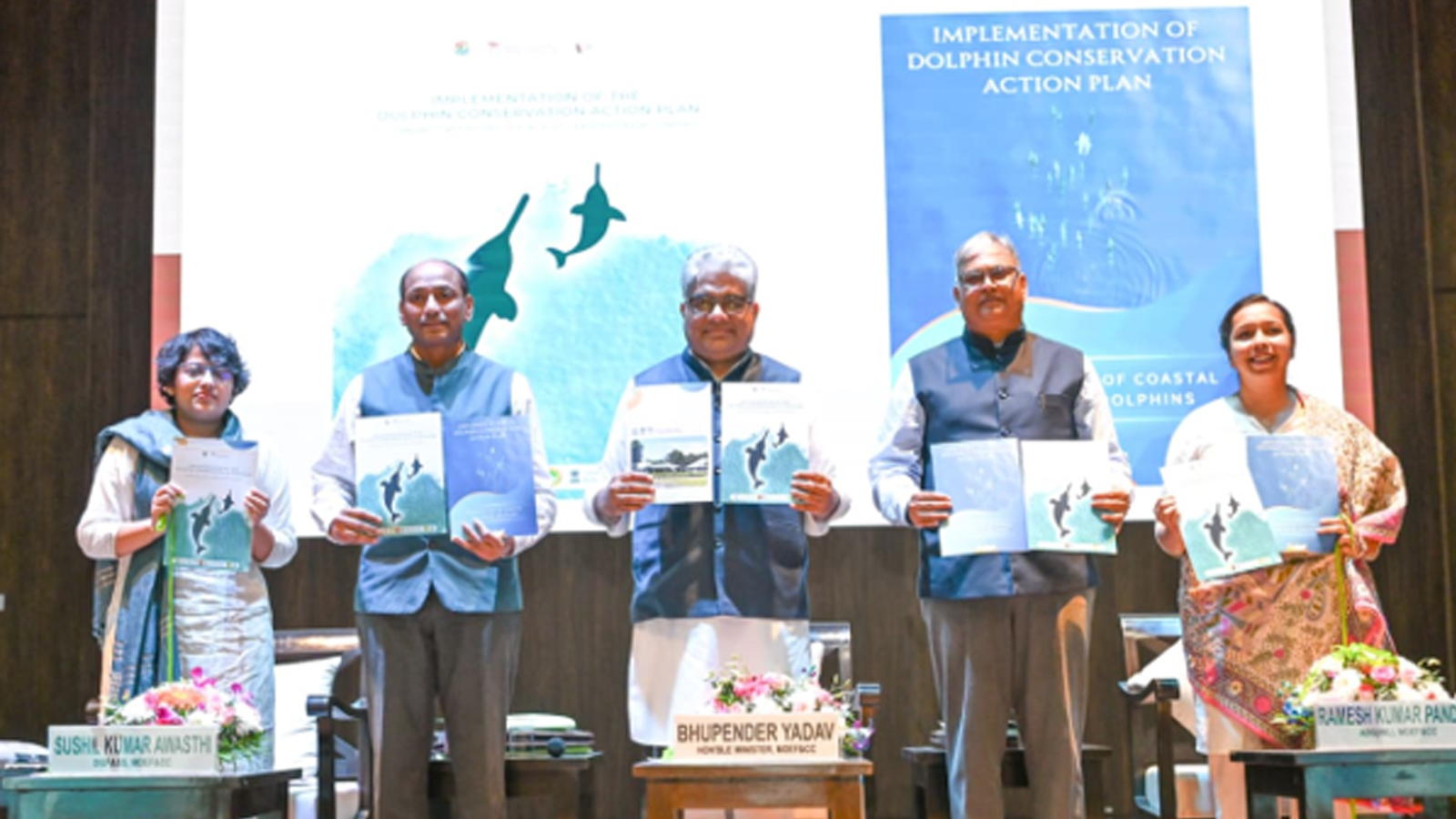Union Minister for Environment, Forest and Climate Change Bhupender Yadav presided over the Wildlife Week 2025 celebrations held at the historic Hari Singh Auditorium, Indira Gandhi National Forest Academy (IGNFA), Forest Research Institute (FRI) Campus, Dehradun. The event, themed “Human–Wildlife Coexistence,” brought together senior government officials, forest officers, conservation experts, scientists, students, and representatives from various environmental institutions.
Organized by the Ministry of Environment, Forest and Climate Change (MoEFCC) in collaboration with the Wildlife Institute of India (WII), Indian Council of Forestry Research and Education (ICFRE), IGNFA, and FRI, the celebrations underscored a collaborative, inter-institutional approach to conservation and sustainable wildlife management.
Yadav highlighted the growing importance of fostering harmony between humans and wildlife, reflecting the Prime Minister’s vision outlined during the 7th National Board for Wildlife (NBWL) meeting. He emphasized that “Wildlife protection is not just a duty, but a shared responsibility for ensuring harmony between nature and people.”
The Minister called for community-driven and technology-enabled conservation models, urging all stakeholders to move from “conflict to coexistence” through innovation, awareness, and collective participation.
Marking a milestone in India’s wildlife management efforts, the Minister launched five national projects designed to strengthen species conservation and address human-wildlife conflict:
1. Project Dolphin (Phase II): To enhance protection and monitoring of river and marine cetaceans across India.
2. Project Sloth Bear: Introduction of a national implementation framework for the conservation of sloth bears.
3. Project Gharial: Launch of an implementation plan for gharial conservation.
4. Centre of Excellence for Human–Wildlife Conflict Management (CoE–HWC): To be established at SACON, this centre will lead policy support, research, and field-based mitigation strategies.
5. Tigers Outside Tiger Reserves Initiative: To address tiger-human conflicts in non-protected landscapes through community participation, technological interventions, and landscape-level planning.
The Minister also unveiled four national-level population estimation and monitoring programmes:
* Second Cycle of River Dolphin and Cetacean Estimation, including the release of a new field guide.
* All India Tiger Estimation Cycle–6, with field guides published in eight regional languages.
* Action Plan for the Second Cycle of Snow Leopard Estimation.
* Progress Report on the Population Estimation of Great Indian Bustard and Lesser Florican.
Additionally, Yadav inaugurated online the SFS Officers’ Mess at CASFoS, Coimbatore, symbolizing ongoing capacity-building efforts in forestry training.
A key highlight of the event was the National Hackathon on Human–Wildlife Conflict (HWC) Coexistence, which brought together 420 participants from 75 institutions across 20 States and UTs. The hackathon showcased AI-based tools, spatial analytics, and community engagement models for real-time conflict mitigation.
Six finalist teams presented their innovations before the Minister and an expert jury. The top three winners received cash awards and certificates, while others were felicitated with appreciation prizes. Yadav also presented awards to the winners of the IGNFA wildlife quiz competition.
In his concluding remarks, the Minister reiterated the government’s unwavering commitment to biodiversity conservation, inclusive development, and community participation. He urged youth, researchers, and local communities to act as ambassadors of coexistence, embodying the vision of a “Viksit Bharat in harmony with nature.”
The Wildlife Week 2025 celebrations in Dehradun reaffirmed India’s leadership in sustainable wildlife management and its commitment to balancing ecological protection with human well-being.










